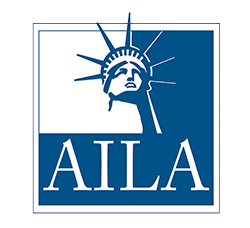
Is there any Defense for Falsification of Employment Records?
Falsification of Employment Records Regarding Medical History
Small v. Oneita Industries determined that an employee's false statement in an employment application bars recovery of workers' compensation benefits if: (1) employee knowingly and willfully makes false representation as to his physical condition; (2) employer relies upon representation and reliance is substantial factor in hiring; and (3) there is causal connection between false representation and injury. 318 S.C. 553, 459 S.E.2d 306 (1995).
If, subsequent to an employee's injury, an employer discovers the employee misrepresented his physical condition, is the employer liable for worker's compensation benefits if it fails to terminate the employee? "We find no authority to hold that the failure to terminate an employee upon discovery of a misrepresentation subsequent to an injury vitiates the employer's reliance." Small(1995). To so hold would be to require an employer who learns of a misrepresentation subsequent to an injury to elect either termination, in which case it may be subject to a wrongful discharge suit, or retention of the employee, in which case it is liable for worker's compensation. Id. We decline to put the employers of this state on the horns of such a dilemma.
A series of cases decided by our Supreme Court and this Court have dealt with this issue: Cooper v. McDevitt & Street Co., 260 S.C. 463, 196 S.E.2d 833 (1973), Givens v. Steel Structures, Inc., 279 S.C. 12, 301 S.E.2d 545 (1983) and McLeod v. Piggly Wiggly Carolina Co., 280 S.C. 466, 313 S.E.2d 38 (Ct.App.1984). All three cases involve claims for workers' compensation, and each presents the issue of what an employer must prove to escape liability for compensation, based on a misrepresentation by an applicant for employment.
In Cooper, the employer denied liability on the ground that the injured employee had intentionally misrepresented a previous back injury. The Industrial Commission rejected the defense. The employer appealed. The trial judge reversed, and the employee appealed. The Supreme Court reversed the decision of the trial judge. According to the Court, there was "ample evidence to sustain the finding[s] of the trial judge that the employee was guilty of fraud in securing his employment through false representation as to his previous back injury and that the employer would not have hired him had he not misrepresented his physical condition." Cooper (1973). Despite these findings, however, the Court required that the employer also prove "a causal connection between the false representation made by the appellant and his subsequent injury." Id. at 469, 196 S.E.2d at 836. Givens and McLeod are in accord.
Job applicant's representations to employer that he was good laborer, he had strong back, and could operate jackhammer did not amount to affirmative misrepresentations such as would warrant denial of workers' compensation benefits for subsequent back injury, though worker had suffered prior unrelated injury, absent evidence that worker believed his statements were not true or of causal connection between alleged misrepresentations and second injury.
Small filled out an employment application for Respondent, Oneita Industries, in which he denied ever having any back problems. In fact, Small had a twenty-five percent disability rating due to back injuries suffered in prior employment. Unaware of his back problems, Oneita hired Small as a materials handler. Small injured his back in March 1991 while pushing a 200 pound box full of cloth. He did not return to work but was not officially terminated subsequent to his injury. Small's application for worker's compensation was denied by the Single Commissioner on the ground the claim was barred by this Court's opinion in Cooper v. McDevitt & Street Co., 260 S.C. 463, 196 S.E.2d 833 (1973). The Full Commission affirmed, as did the Circuit Court and the Court of Appeals. Id. In Cooper, we adopted the rule enunciated by Professor Larson that an employee's false statement in an employment application bars recovery of worker's compensation benefits if: (1) the employee knowingly and willfully makes a false representation as to his physical condition, (2) the employer relies upon the representation and the reliance is a substantial factor in the hiring, and (3) there is a causal connection between the false representation and the injury. Id.











